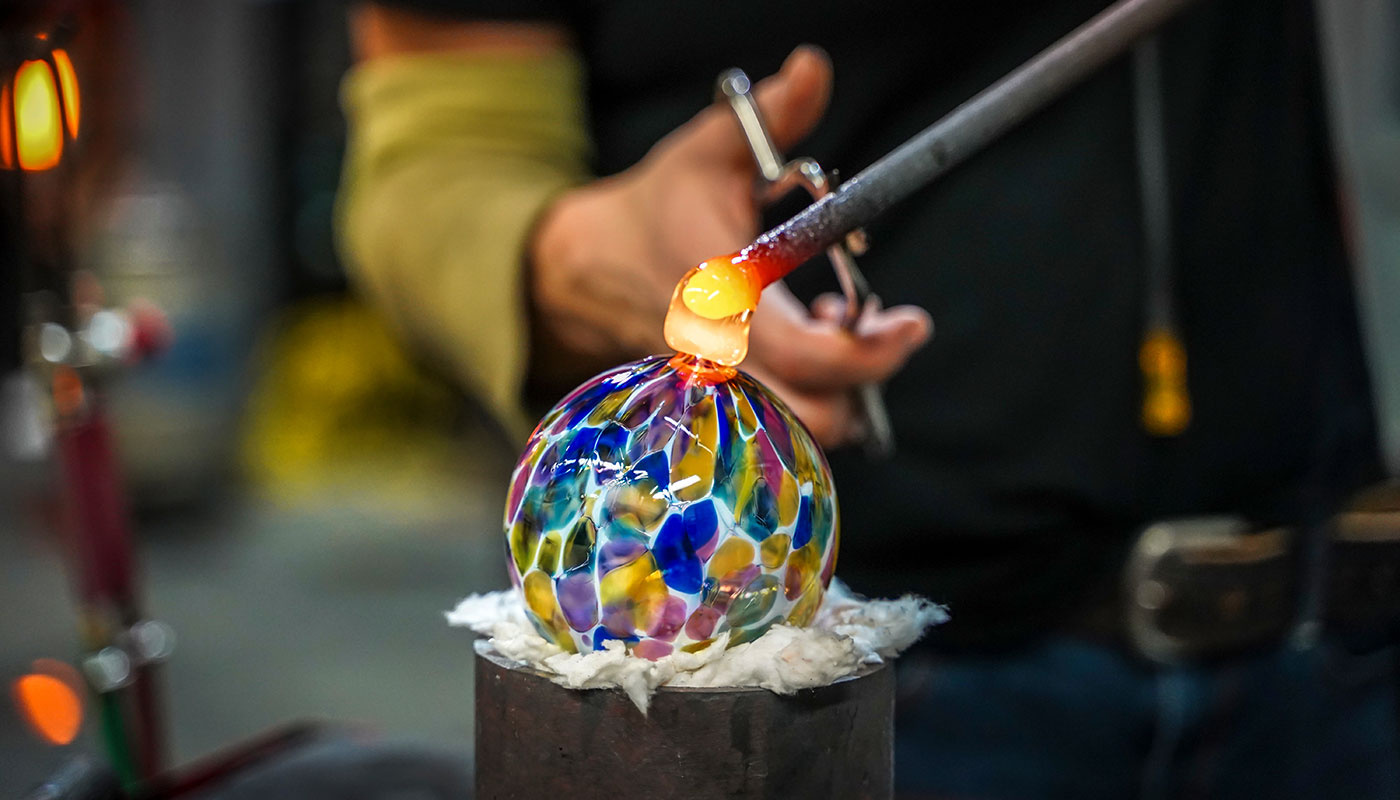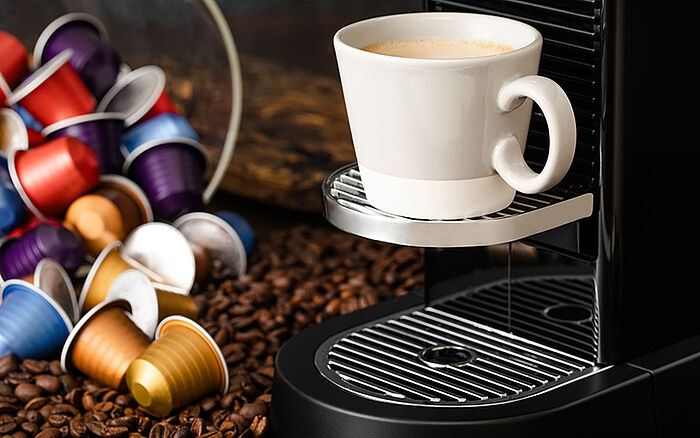
Artisanal pride and legal prejudice
The Intellectual Property (IP) system is constantly in motion, whether it is responding to technological developments such as artificial intelligence (AI) and non-fungible tokens (NFTs) or seeking greater international harmonization. But IP law is not always about looking to the future – sometimes, a view into the past is needed to expand the scope of protection.
This month's news roundup examines how renowned local industries in Europe will soon have a fresh way to benefit from IP exclusivity. Meanwhile, we reflect on how it is never too late to come to terms as two out-of-court settlements resolve a patent and a trademark spat far from the public eye.
A helping hand for historical skills
It is widely known that only sparkling wine from the viticultural region of Champagne can legally bear the famous name. This is because "Champagne" is preserved as an Appellation d'origine contrôlée (AOC), an IP designation particular to France. More broadly, an AOC is a kind of geographical indication (GI) – a sign that a product has qualities or a reputation that are due to its place of origin. Historically, GIs in the European Union have only applied to foodstuffs and agricultural products, such as Romania's Dealurile Transilvaniei wine and Sweden's Grebbestadostron oysters. Now, that is set to change.
On October 18, 2023, the European Parliament and the Council of the European Union signed a regulation to extend GI labels to craft and industrial products. Following on from this step, the legislation will be published in the Official Journal of the European Union early next month and will enter into force on the twentieth day thereafter. Some examples of traditional wares that will be eligible are Donegal tweed (Ireland), Murano glass (Italy) and Solingen cutlery (Germany).

The extension of GI protections to works of handicraft and industry strongly benefits smaller, local businesses that sell their goods internationally. Only recognized producers in the specified areas will be able to label their products using exclusive terminology. Other potential examples include Tyrolean dirndls and Aran jumpers.
Though a first for the European Union, the recognition of non-agricultural products in this way is not a novel concept. The Geneva Act, adopted in 2015, updated the Lisbon Agreement to offer a means of registering GIs and Appellations of Origin (similar to France's AOCs) in up to 72 countries. Administered by the World Intellectual Property Organization (WIPO), a single set of fees is needed to attain international protection through the Lisbon System.
As one of the 43 Contracting Parties of the Geneva Act, the European Union has had the opportunity, but not the internal framework, to avail fully of this registration system for some time. Now that GIs will soon cover manufactured goods in the region, European craftspeople will be able to have the products of their skills and methods indicated throughout the common market via the Lisbon System.
Spanish acting Minister of Industry, Trade and Tourism, Héctor José Gómez Hernández, reflected on the symbolic and practical benefits of the new regulation. "The expertise, tradition and talent of our artisans are amongst the treasures that Europe has to protect. With the adoption of this regulation […], we are creating the conditions to protect the traditional know-how of our artisans and producers not only in Europe, but also internationally."
All this means that to dine on Edam Holland, served upon Limoges porcelain and cut with Albacete cutlery, would be to indulge in a true feast of European IP.
When the grounds settle: Nespresso trademark dispute comes to a close
It has often been spouted that coffee is the world's second-most traded commodity after oil. And although the thought may be a soothing accompaniment to a morning brew, it is far from the truth. Nevertheless, coffee remains a colossal industry and the scene of fierce competition: In 2022, the size of the market in the United States alone was estimated to be more than $85 billion USD. Intensely defensive of their IP rights, coffee sellers are no strangers to the courtroom as temperatures rise and rivalries bubble over into litigation.
However, these conflicts can occasionally simmer down, as was the case between Nespresso and Peet's Coffee. Earlier this month, the parties agreed to settle a trademark dispute before the U.S. District Court for the Southern District of New York. The quarrel began in March 2022, when Nespresso, a brand owned by Swiss food giant Nestlé, filed suit against California-based Peet's Coffee for a host of allegations: infringement of trademarks and trade dress, dilution of trademarks and trade dress, unfair competition, false endorsement, false association and false designation of origin. The extract of Nespresso's claims boiled down to the likelihood of confusion among customers of coffee pods.

The coffee pod has transformed the way we make a quick cup of joe and stirred intense debate on the interaction of form, function and IP rights. A product's shape can be protected under trademark law so long as the relevant aspects do not fulfill a practical purpose. But defining the boundaries is not always easy.
Originally developed by Swiss inventor Eric Favre, Nestlé filed for patent rights to coffee pods in 1976, gaining exclusive rights to this extremely valuable innovation. Once the first generation of patents expired, other companies were quick to develop similar systems, often selling capsules compatible with existing machines. However, in the eyes of the Nespresso, the pods sold by Peet's Coffee were too similar in appearance to their own.
This was not the first time Nespresso had found itself in hot water over trademarks and trade dress. In 2021, the Swiss Federal Tribunal ruled that the three-dimensional design of their pods was ineligible for trademark registration on two grounds. Firstly, only 33% of 1,112 people surveyed in 2015 could identify a Nespresso capsule by shape alone, meaning it was not sufficiently distinctive. Secondly, it was determined that "technical necessity" compels coffee pods to take on a similar appearance in order to function optimally.
Interestingly, when asked what elements helped them recognize a genuine Nespresso, 21% replied: television, advertising… or "George Clooney."
The efficacy of celebrity endorsements to one side, this month's undisclosed settlement brings the recent bruhaha with Peet's Coffee to a close with prejudice. Speaking to Reuters, a spokesperson for Nespresso simply stated that the companies had agreed to "amicably resolve" the feud.
Signal dropped: Caltech ends Wi-Fi patent lawsuit
At the beginning of the year, we explored the patent infringement lawsuit brought by the California Institute of Technology (Caltech) against Apple and Broadcom. This month, the case concerning Wi-Fi chips came to a sudden and rather unexpected conclusion.

Wireless communication chips inhabit millions of ordinary devices, which makes the underlying technology extraordinarily valuable. In August of this year, Caltech reached a settlement with Samsung over a separate patent infringement lawsuit but is still pursuing action against Dell, HP and Microsoft.
The California-based research university had alleged that Broadcom infringed upon its wireless patents with the communications chips used in millions of Apple products, from iPhones to Apple Watches. Following a trial in 2020, Broadcom and Apple were found liable for patent infringement and ordered to pay damages. However, last year, a Court of Appeals for the Federal Circuit vacated the award of $1.1 billion USD to Caltech because the two-tier damages theory used to calculate the figure was "legally unsupportable." The Court remanded for a second trial to determine a revised damages award.
That trial is no longer to take place. On October 11, Caltech filed a stipulation to dismiss all its claims against Broadcom and Apple with prejudice, requesting the same for all counterclaims. On account that both the jury trial in 2020 and the Appeals Court decision found there to have been infringement of at least two of the three asserted patents, this settlement would not have come cheaply.
The obvious benefits of closed-door agreements are confidentiality, the cessation of expensive proceedings and the release of court time. On the other hand, given that they take place beyond public scrutiny, there is an inevitable shadowiness that cannot be dispelled.
Filed in

A country and a supermarket continue their tussle over a trademark. Meanwhile, a study reveals the extent of academic patents in Europe and a publishing house tackles AI.



